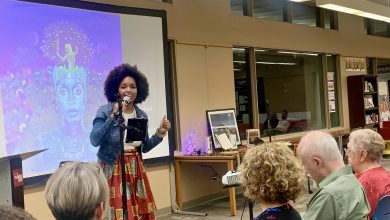Evaluating Information – National Information Literacy Awareness Month
As important as it is to be able to find information, it’s just as important to evaluate it, before using it! Our series about National Information Literacy Awareness Month continues with some ways that you can evaluate information.
Beginning your research in a library database or other information retrieval tool is a good first step, but you must also evaluate the items within it (books, articles, etc.) to be sure that they are useful to your academic research. Understanding WHO is behind the information, WHY it was published, and WHEN it was created helps to ensure that the information is valid for academic research. Here is what I mean by Who, Why, and When:
- Who: This explains the credentials, degrees, qualifications, reliability, and reputation of the author, organization, publisher, and sponsor as a way to evaluate the accuracy and quality of content. Find information about authors on their university profile pages, LinkedIn, or in a website’s “About” page. What qualifies this person, organization, or publisher to write about the topic you are researching?
- Why: This addresses the purpose of the resource, including subject coverage, bias/slant/agenda, depth of coverage, comprehensiveness, and intended and potential audience. Is the resource intended to sell something? Is its purpose purely informational? Is the information covered fairly balanced? As you read the content, do you detect a hidden or open agenda?
- When: Important dates include creation, acceptance, publishing, and updates, as well as date coverage of content. Does the information need to be current? Are you researching a rapidly-changing topic, such as nanotechnology or information security, or a relatively stable one, like the life of Abraham Lincoln or the origins of Prohibition in the United States? Sometimes it isn’t necessary to find the most current information, and sometimes timeliness does matter.
Though fully evaluating information, especially scientific research, can be quite complex, knowing Who is behind the information, Why it exists in the first place, and When it was created or updated is an important part of being information literate.
You can find more guides to evaluating information on the library website.
As always, if you need help, Ask a Librarian!
Scrutiny image by Matchstick, via stock.xchng.






Great post! Thank you Rose Petralia!